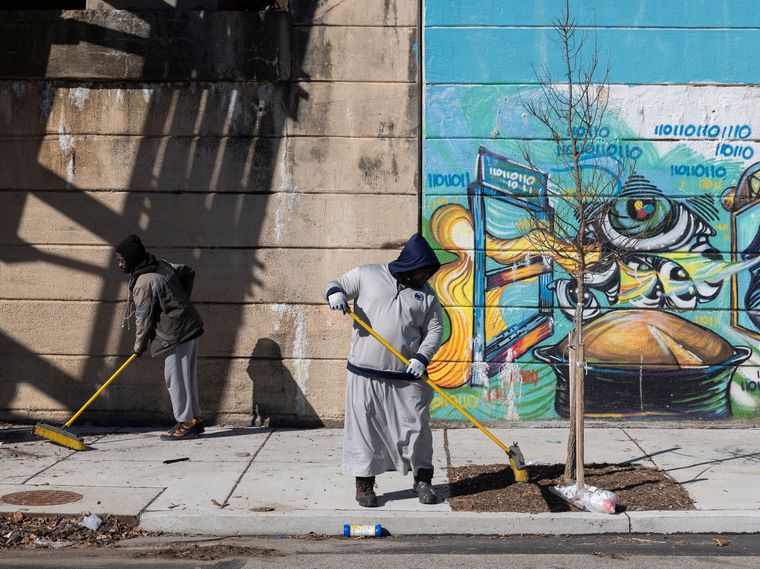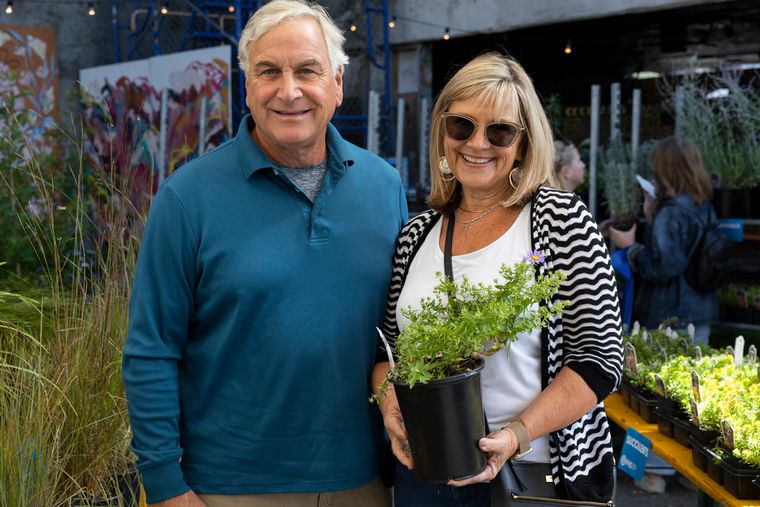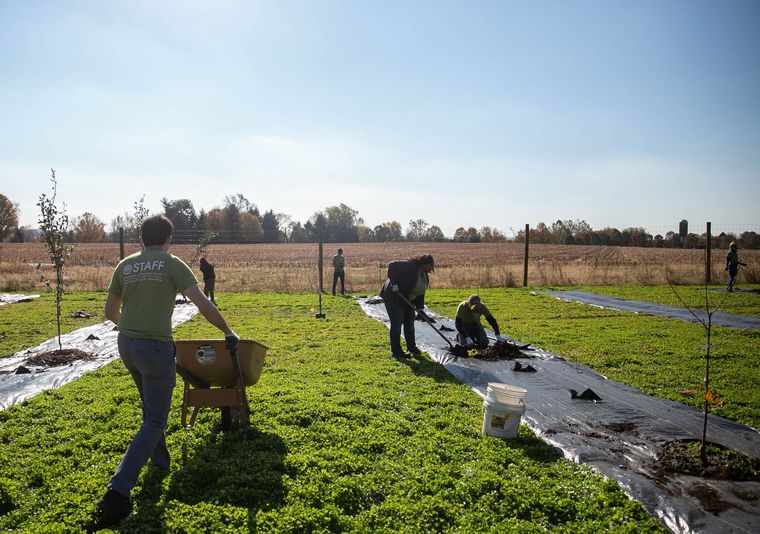



Harvesting for Hope
Press Releases
community gardens

According to the United States Department of Agriculture, an estimated 11.1 percent of U.S. households were food insecure at least some time during the year in 2018, meaning they lacked access to enough food for an active, healthy life for all household members.
Here in Philadelphia County, the number is higher than the national average, with 302,685 people or 18.3% of the population living with food insecurity. PHS is addressing the needs of all Philadelphians by training and empowering community gardeners in particular, to care for and distribute their organic produce to those living with food insecurity in their neighborhood as well as through a network of food banks.
“PHS has supported Philadelphia’s community gardeners for almost 50 years, working to ensure that gardeners have opportunities to share and build their technical expertise. This support has also provided those gardeners with the organizational structure needed to increase their capacity around food production and provide access to quality produce for the community over the long term,” says Julianne Schrader Ortega, PHS Vice President, Chief of Healthy Neighborhoods.
Planting the Seed
In 2006, PHS created a new effort within the community gardening program, City Harvest, to provide fresh, organic produce, personally grown by community gardeners to share with food cupboards in their neighborhoods. “The positive response from the gardeners was heartfelt and unanimous,” says Eileen Gallagher, PHS Associate Director, Community Gardens.
With a core group of 20 interested gardeners ready to donate their extra produce, PHS contacted Share, an independent 501(c)(3) nonprofit and the lead agency in Philadelphia County for the State Food Purchase Program and The Emergency Food Assistance Program. “At the time, Share was working with over 550 food cupboards in the city and helped us connect our existing community gardens with local food cupboards,” says Gallagher.=
"PHS is one of the critical partner organizations for us to improve healthy food access in and around Philadelphia,” says George Matysik, Executive Director, Share Food Program. “Each year, Share provides food assistance to more than 700,000 people in our region--working closely with our partners. Our long-standing partnership with PHS has included coordinated urban gardening to increase locally grown charitable food and seedling development at our collaborative greenhouse,” he says. “If we're going to make a serious dent in poverty in our region--it's going to require all hands on deck. We know we can count on PHS as an ally in this fight,” says Matysik.
A Bumper Crop of Gardens
“The PHS team realized that we could energize community gardens to grow more for the program if we provided them with organic seedlings,” says Ed Mitinger, former program volunteer and currently, PHS Community Gardens Specialist. “The first distribution out to the gardens took place in 2007.” Funding from both the USDA and the Albert M. Greenfield Foundation were instrumental in beginning the program. PHS received five years of start-up support from the Albert M. Greenfield Foundation from 2006 to 2011 and two multi-year grants from the USDA, one in 2010 and one in 2014, that allowed PHS to expand work to urban farms as well as increase community-based greenhouse infrastructure.
Since 2006, the number of community gardens participating in the program grew from 20 to approximately 130. “Over the years, the gardens started dedicating more space to growing food for donations,” says Justin Trezza, PHS Program Director, Community Gardens.
As demand from community gardeners grew, “PHS also grew its support by expanding the number of our community-based greenhouses, offering highly productive organic seedlings and materials needed to extend the growing season,” says Adam Hill, PHS Senior Manager of Community Gardens Operations.
New and seasoned growers now attend training sessions hosted by PHS and led by experts from Philadelphia’s community gardening network, and other agricultural experts who focus on topics such as season extension, organic pest control, food safety, building pollinator habitats, and tool care.
Each year, 250,000 organic seedlings are grown and distributed to the network of gardens, farms, and growing sites. When each of these gardens harvests their produce, it is shared with 153 food pantries, soup kitchens and low-cost farmers markets. To date, PHS has trained 2,491 participants in building and stewarding community gardens. Growing Organic and other PHS workshops throughout the year highlight expertise among Philadelphia’s community gardeners and provide resources, tools and training in seed keeping, composting, propagating, putting the garden to bed, and designing a small urban garden, among other topics. The newest resource is the addition of a community gardens tool library at Glenwood Green Acres in North Philadelphia beginning in spring 2020.
Community gardeners of all ages and experiences now have access to technical support and capacity building training, materials to advance food production and other resources to ensure a thriving landscape of community gardens and local food systems. PHS also works with home gardeners year-round offering educational programming and enlightening events to inform and engage residents no matter their skill level.
"With one in five Philadelphia residents facing food insecurity, we need a wide range of approaches to help our neighbors who are struggling to put food on the table. PHS’s community gardening expertise and support of urban gardening not only makes healthy foods more accessible and affordable, it also educates and empowers communities to be part of the solution in the fight against hunger,” says Kathy Fisher, Policy Director, Coalition Against Hunger.
Harvesting Friends and Partnerships
As food insecurity remains an important and escalating concern in Philadelphia, PHS has taken on this issue as a key focus for its work, with new ideas and resources to increase impact.
“Community gardening provides a powerful, multi-dimensional tool that combines the joy of tending invaluable green spaces with community service to nourish the bodies and hearts of neighbors,” says Gallagher.
-MM
Thank you City Harvest supporters including the Leo and Peggy Pierce Family Foundation, the City of Philadelphia - Department of Housing and Community Development, the Bennett Family Foundation, the McLean Contributionship, the Pennsylvania Department of Agriculture, an Anonymous Donor, and the Albert M. Greenfield Foundation, founding funder.